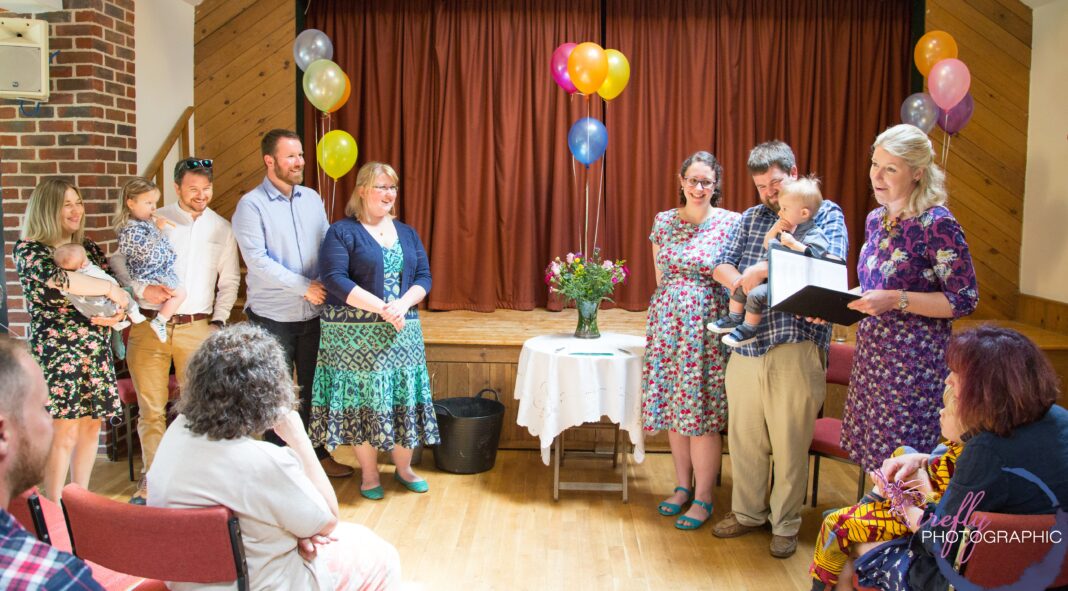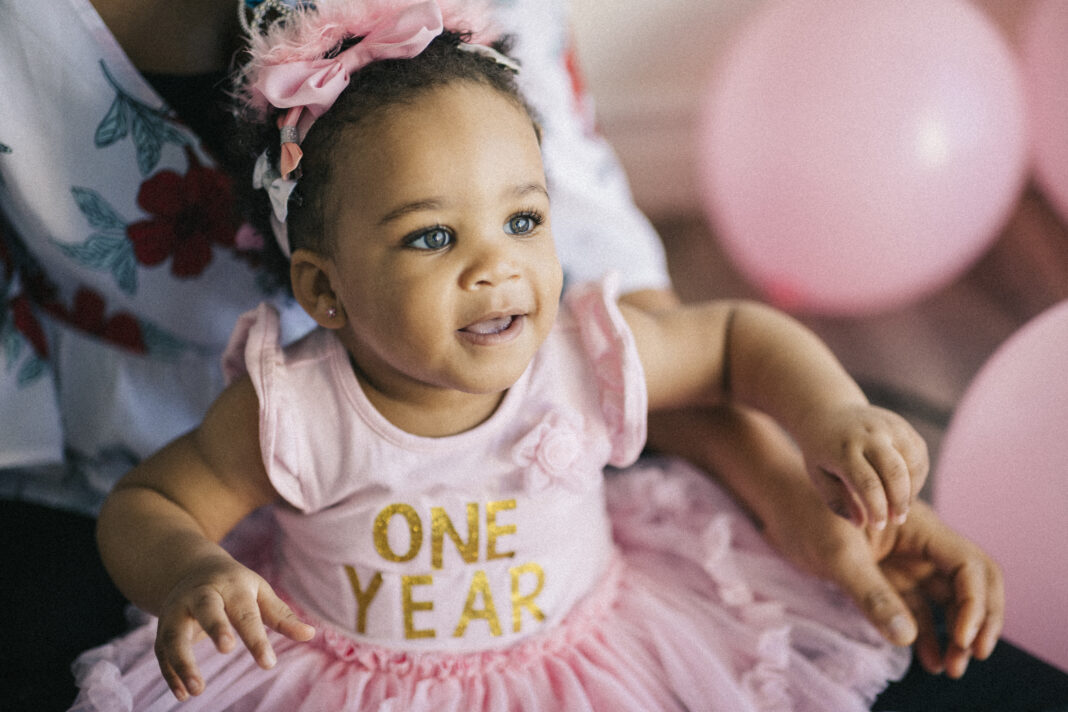What is a humanist naming ceremony?
Humanists are non-religious people who believe that we have one life and should live it ethically should live it ethically with kindness and compassion. A humanist naming ceremony reflects a family’s humanist values, and is conducted by a celebrant who shares them. It’s a perfect way to welcome a child into a family without there being any reference to religion. That’s what makes our ceremonies so inclusive and perfect for families with different beliefs.
A humanist naming ceremony focuses on the child, the joy and responsibility of parenting, and the involvement of those close to the child. A humanist ceremony does not induct a child into a belief system, but instead acknowledges the child’s freedom to make up their own mind and make their own choices as they grow older.
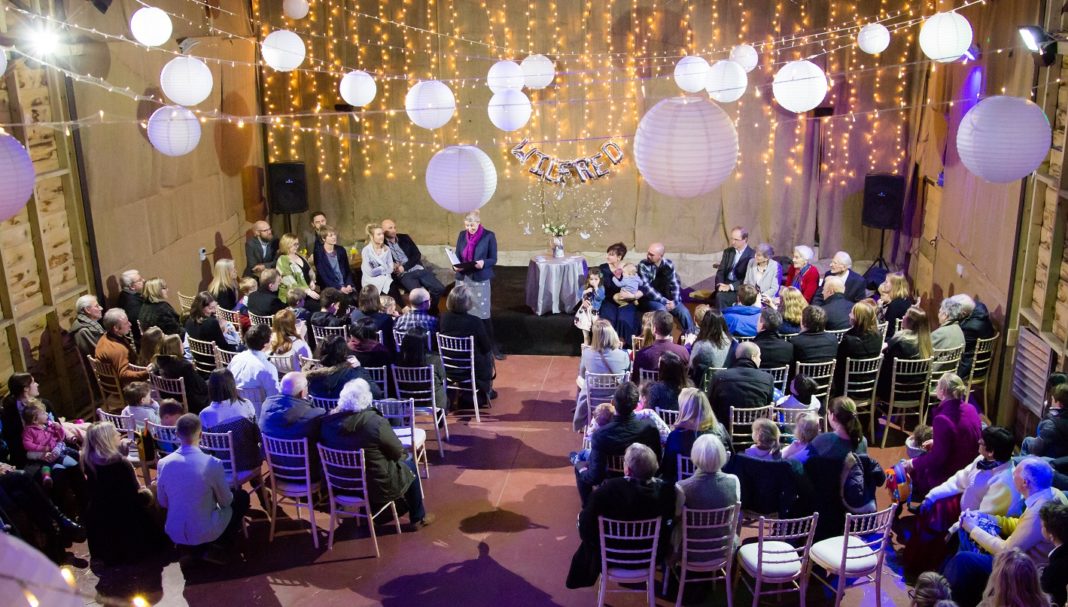
A celebrant is the person who helps create and conduct the ceremony. The Humanist Ceremonies Celebrant Network is the most experienced network of professional celebrants in the UK. Humanists UK pioneered non-religious ceremonies in 1896 and have been conducting award-winning, inclusive, love-filled ceremonies ever since. Wherever you live, there’s a humanist celebrant near you.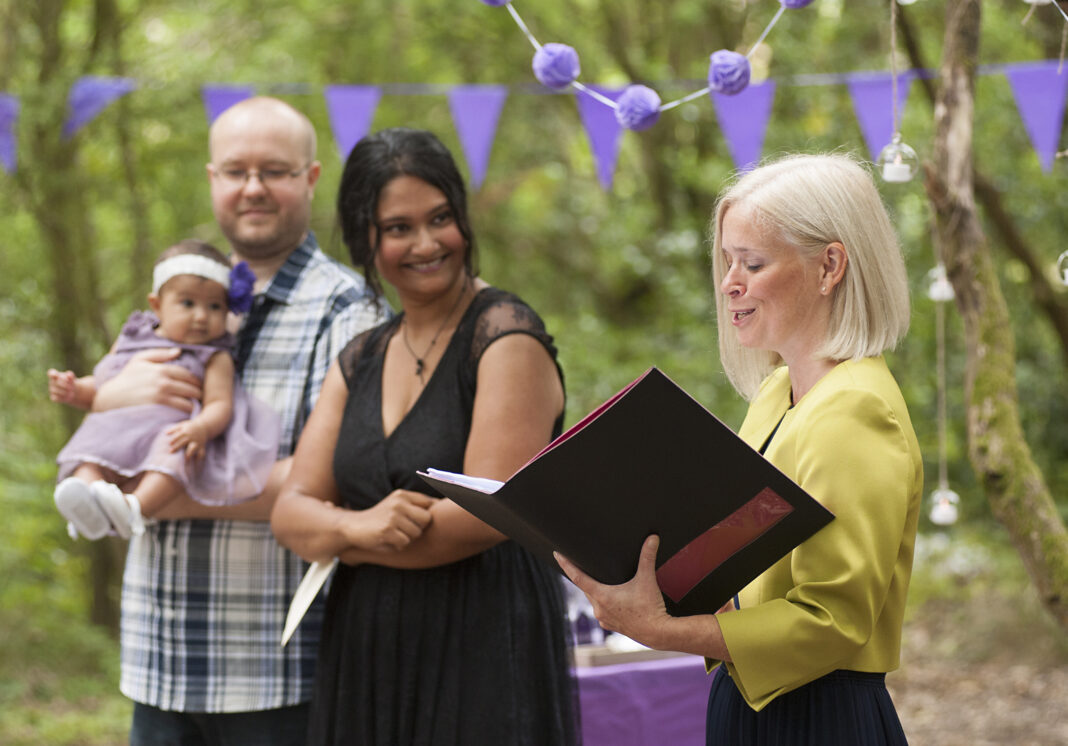
We don’t know if we’re humanists – can we still have a humanist naming ceremony?
Our ceremonies are available to anyone who wants a non-religious ceremony.
Humanists are non-religious people who believe that we have one life and should live it ethically on the basis of reason and humanity. You can find out if you share humanist values by taking our quiz.
What happens at a naming ceremony?
As our 3-minute video explains, each humanist naming ceremony is totally unique to the child. As well as welcoming and naming your child, the ceremony can include readings, promises, the appointment of guideparents, the signing of a certificate, and symbolic gestures such as a sand-blending ceremony to symbolise the involvement of each guest in the child’s life.
We’d like to say why we chose our child’s name. Can we do this?
Yes, and in fact that’s often a highlight of the occasion. There’s nearly always an interesting story about how the child’s name came to be chosen, and it can be lovely to recount this.
Where can we hold a naming ceremony?
With a humanist naming ceremony, the choice of venue is entirely up to you. You can have your ceremony at home, in your garden, at a hotel, or in a park or woodland.
How can we involve guests in the ceremony?
Your celebrant can suggest many ways of involving guests in activities as part of the celebration. Everything from sand-blending ceremonies and tree-planting, to wishing trees and time capsules. There are endless creative, engaging, inclusive activities.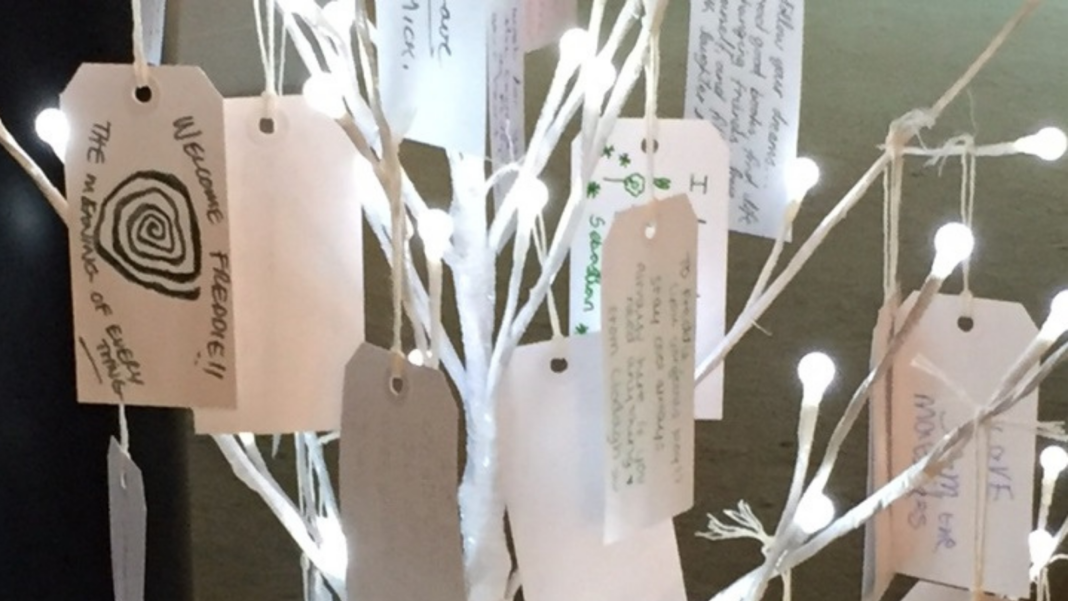
Can we have a joint birthday party and naming ceremony?
Absolutely! Many families combine a naming ceremony with a first birthday party. A double celebration is the perfect opportunity to gather friends and family together.
Do you conduct adoption ceremonies?
Yes. We are delighted to arrange adoption ceremonies to welcome a child – or children – into your family. You may decide to call it a ‘welcoming ceremony’ rather than a ‘naming ceremony’.
Your ceremony can also include the story of your journey to adoption and include thanks those who have supported you along the way.
Is there a non-religious version of the word ‘godparent’?
Yes, there are lots to choose from. The most popular alternative to ‘godparent’ is ‘guideparent’, but some families say ‘mentor’ or ‘guardian’. Other families go for a more light-hearted term like ‘sparent’ or ‘oddparent’! And, since it’s a term we all know and understand, others prefer to stick with the word ‘godparent’ whilst acknowledging that the religious aspect of the role isn’t relevant in these circumstances.
Can I appoint ‘godparents’ at a non-religious naming ceremony?
Many families like to use a naming ceremony to appoint significant adults to play a role in their child’s life. It’s one of the main reasons people decide to have a naming ceremony. How many (if any) guideparents you appoint is entirely up to you.
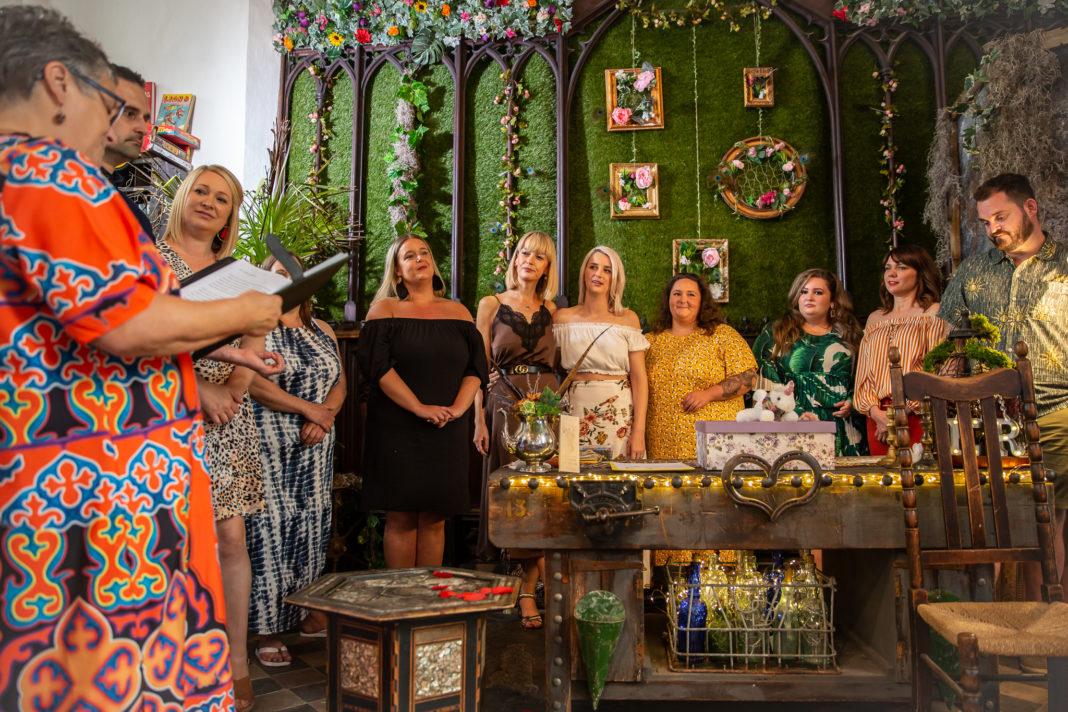
We have some religious relatives. Will they feel comfortable at a naming ceremony?
Humanist ceremonies are inclusive. The ceremony focuses on the child, the joy and responsibility of parenting, and the involvement of those close to the child.
Does it matter that I’m a single parent/we’re not married/we’re a same-sex couple?
Families come in all shapes and sizes. Love is love – and we’re delighted to be involved in helping any family mark one of life’s significant milestones.
We had our first child christened. Can we have a naming ceremony for our second?
If you would like to choose a non-religious ceremony this time around, then we’d be happy to help.
I’d love a naming ceremony for my child but hate public speaking. Do I have to say anything?
While most naming ceremonies involve parents making some kind of commitment or promise to their child, it’s not essential. We want the ceremony to express what you want it to – and we want you to relax and enjoy the day. If you don’t like speaking in public, your celebrant can read promises and invite you to say, ‘I promise’.
Do we have to have readings and poetry?
The content and format of the day is entirely up to you.
If you like the idea of a poem or reading, but don’t have one in mind, your celebrant can help you find poems to consider. Your celebrant will be happy to read it on your behalf.
How long does a naming ceremony last and what does it cost?
We don’t have fixed prices as each ceremony is different. Fees range between £150 and £450 (plus travel expenses). The fee covers the hours of preparation that go into writing the ceremony as well as the delivery on the day, which may include the provision of props and activities.
The length of the ceremony depends on what you want to include. As a guide, a ceremony will last around 20-30 minutes – but the celebrations can last all day.
I love the idea of a naming ceremony, but my partner isn’t convinced. What should I do?
A good place to start would be to show them our short video and the naming ceremony stories on our website – and this page of frequently asked questions. The next step would be to talk to your local humanist celebrant about how to make the day special and meaningful to both of you.
You can find your local humanist celebrant via our online search facility.
Have you got another question? Send us an email and we’ll get back to you.




